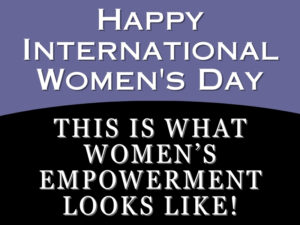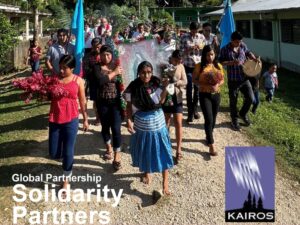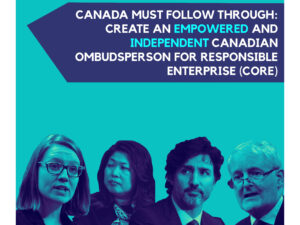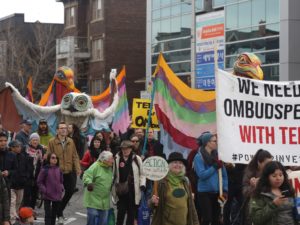An independent and empowered CORE is at the core of corporate accountability and gender justice
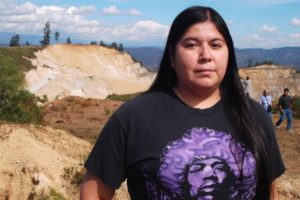
On Monday, April 8, the federal government appointed the Canadian Ombudsperson for Responsible Business Enterprise (CORE), but failed to create an independent office with real powers to investigate abuses and redress harms caused by Canadian companies operating abroad, essentially breaking a promise they made 15 months ago.
KAIROS is profoundly disappointed by this announcement. Canadian companies operating overseas are too frequently associated with egregious human rights abuses, including forced labour, rape, and murder. On January 17, 2018, after over 10 years of advocacy by KAIROS, its members, and civil society partners in Canada and around the globe, the Government of Canada publicly announced that it would create the CORE. The position was intended to hold Canadian mining companies and their subsidiaries, as well as the oil and gas and garment sectors, accountable for human rights violations at their overseas operations. The CORE, which was to be independent and empowered to investigate, was billed as the first of its kind in the world. Holding companies accountable would range from public recommendations to withholding government funding and diplomatic support.
This week, rather than following through on its promise, the Canadian government unveiled a powerless advisory post, little different from the Corporate Social Responsibility (CSR) Counsellor position that previously existed and was abolished because it was deemed ineffective. The CSR Counsellor created by the Canadian government in 2009 failed to successfully mediate a single case because it had no authority to summon witnesses and compel the production of documents. At least half of the companies that were subject to review refused to participate.
One of the critical roles of an independent and empowered Ombudsperson would be to guarantee that the rights of Indigenous peoples around the world are respected. Attaining the free, prior, and informed consent of local Indigenous communities is a requirement of all extractive projects, as stipulated in the United Nations Declaration on the Rights of Indigenous Peoples. Canada’s official commitment to uphold the UN Declaration is a responsibility to ensure that Indigenous communities around the globe, including Indigenous women in those communities, are properly consulted, and that their rights to consent are respected.
Corporate accountability in the extractive sector is an Indigenous rights and gender justice issue. Women typically feel the negative social and environmental impacts of mining earlier and more acutely than men. They can experience increased physical and sexual violence and health problems. An independent Ombudsperson with a strong gender-based analysis, combined with the power to investigate, would help ensure the protection of women’s human rights and contribute to the prevention of gender-based violence.
In responding to the April announcement, KAIROS shares its deep disappointment with partners in the Global South who hoped that Canada was finally becoming a global leader on corporate accountability. We continue to stand in solidarity with those who have shared countless testimonies of human rights abuses by Canadian mining companies and continue to risk their lives when they speak out.
Some of our partner responses include:
Natalia Atz Sunuc, a Maya Kaqchikel human rights defender from Guatemala, says: “It is an indignation that the government [of Canada] is asking us to continue to wait [for an effective and independent] Ombudsperson, despite the overwhelming participation and pressure from social movements in Canada and all over the world.…This appointment disregards the requests to respect communities that are already impacted by Canadian mining companies, such as with the Marlin Mine case of Guatemala.”
Ivonne Yanez, president of Acción Ecológica in Ecuador, speaks of continued cases of powerful corporations successfully defying local or national attempts to hold them to account: “An independent Canadian Ombudsperson for Responsible Business Enterprise, with power to investigate, could take action in relation to Canadian companies that might be acting in contempt of court in other countries.”
Beverly Longid, coordinator of the Indigenous Peoples Movement for Self-Determination and Liberation of the Philippines (IPMSDL), shared that although the announcement is disappointing, “this news shall not stop Indigenous peoples and others negatively impacted by Canada mining companies from demanding redress, justice, and clean up/rehabilitation. We shall not stop calling the attention of governments, the UN, and other human rights mechanisms to the need to stop existing and regulate future mining corporations.” She calls on the Canadian government to “put people and their communities at the heart of development.”
Dr. Sherry Pictou, Assistant Professor of Women’s Studies at Mount Saint Vincent University, Halifax, concludes: “The failure of the Government of Canada to appoint an ombudsperson without defining any real powers to investigate and redress abuses by Canadian companies is another great injustice added to a long list of political deceptions in upholding international human rights law, the United Nations Declaration on the Rights of Indigenous Peoples, and Canada’s own Truth and Reconciliation Calls to Action…An Ombudsperson without the power to investigate only benefits Canadian corporations…the obscurity surrounding this recent appointment, underscores a reinforcement, if not a reinterpretation, of laws to protect corporations over human and Indigenous rights, especially over the rights of Indigenous women. If Canada is not willing to uphold international human and Indigenous rights abroad, how can we expect Canada to uphold those rights here at home?”
An Ombudsperson with independence and power to compel documents and to investigate remains a much needed first step towards addressing corporate misconduct in Canada and abroad. The status quo is not a viable option. With our partners, we call for the transformation of this advisory post into an effective, credible, and independent Ombudsperson, hopeful that Canada will become the leader in corporate accountability that we believe it can be.
KAIROS is a member of the Canadian Network on Corporate Accountability (CNCA) and endorses the statement made at the time of the announcement.
For more information, please contact:
Gabriela Jimenez, Latin America Partnerships Coordinator
gjimenez@kairoscanada.org
416.463.5312 Ext. 255


